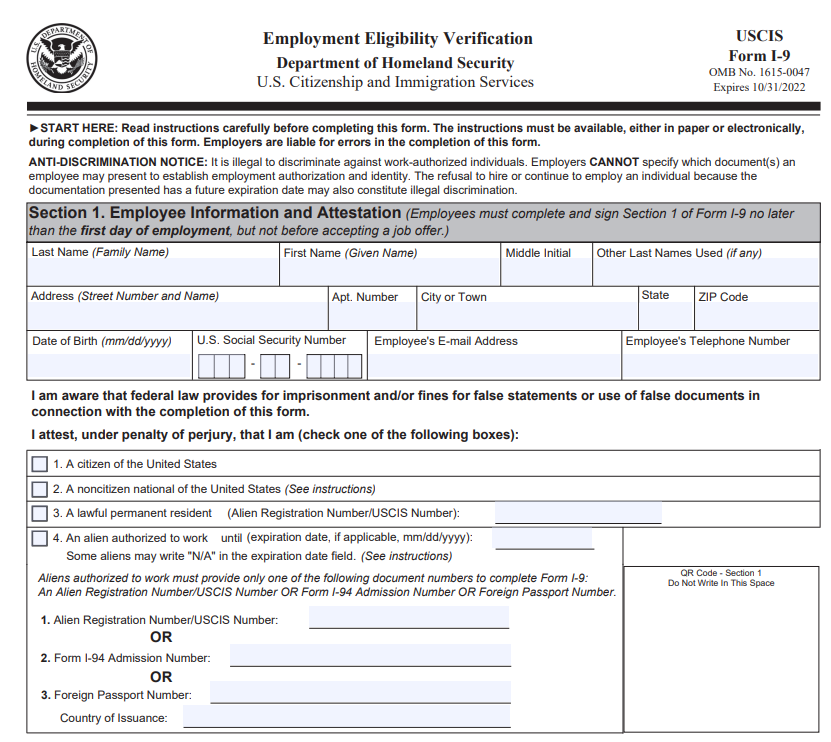In order to obtain additional income as a notary public, many notaries perform Form I-9 certifications. However, per the California Secretary of State, notaries should be aware that certain restrictions apply to performing these type of services in California.
Form I-9 is the United States Citizenship and Immigration Services’ Employment Eligibility Verification Form. Its purpose is for employers to document that they have verified the identity and employment authorization of each new employee to work in the United States. The form itself does not need to be notarized. However, according to the USCIS Handbook for Employers & Guidance for Completing Form I-9, employers are advised that they “may designate someone to fill out Forms I-9 for [them], such as a personnel officer, foreman, agent, or anyone else acting on [their] behalf, such as a notary public.” (See Question 38).
In August 2014, the California Secretary of State’s Notary Public & Special Filings Section clarified with the National Notary Association (NNA) that California notaries are not allowed to complete or certify Form I-9 as an authorized representative, even in a non-notarial capacity, unless they are qualified and bonded as an Immigration Consultant under the Business and Professions Code Sections 22440-22449. The reason being, is that Form I-9 is considered to be an immigration form, by the Secretary’s office.
Any California Notary who completes Form I-9 but is not an Immigration Consultant, can be found to be in violation of Government Code Section 8223(c), which states:
“A notary public who is not qualified and bonded as an immigration consultant . . . may not enter data provided by a client on immigration forms nor otherwise perform the services of an immigration consultant.” Gov. Code § 8223(c).

Helpful LinksUSCIS Form I-9
USCIS Handbook for Employers_M-274.pdf
NNA Notary Bulletin – August 2014